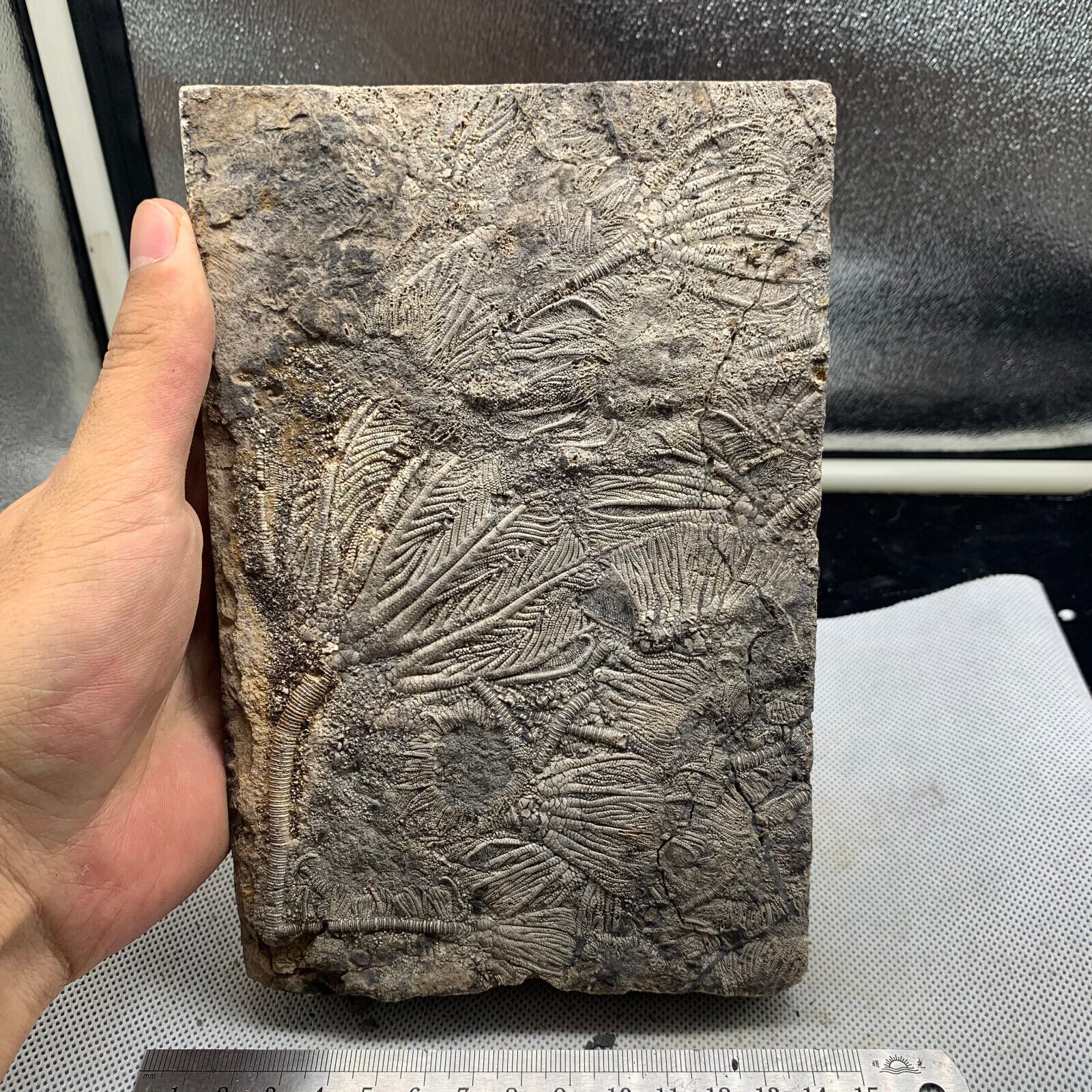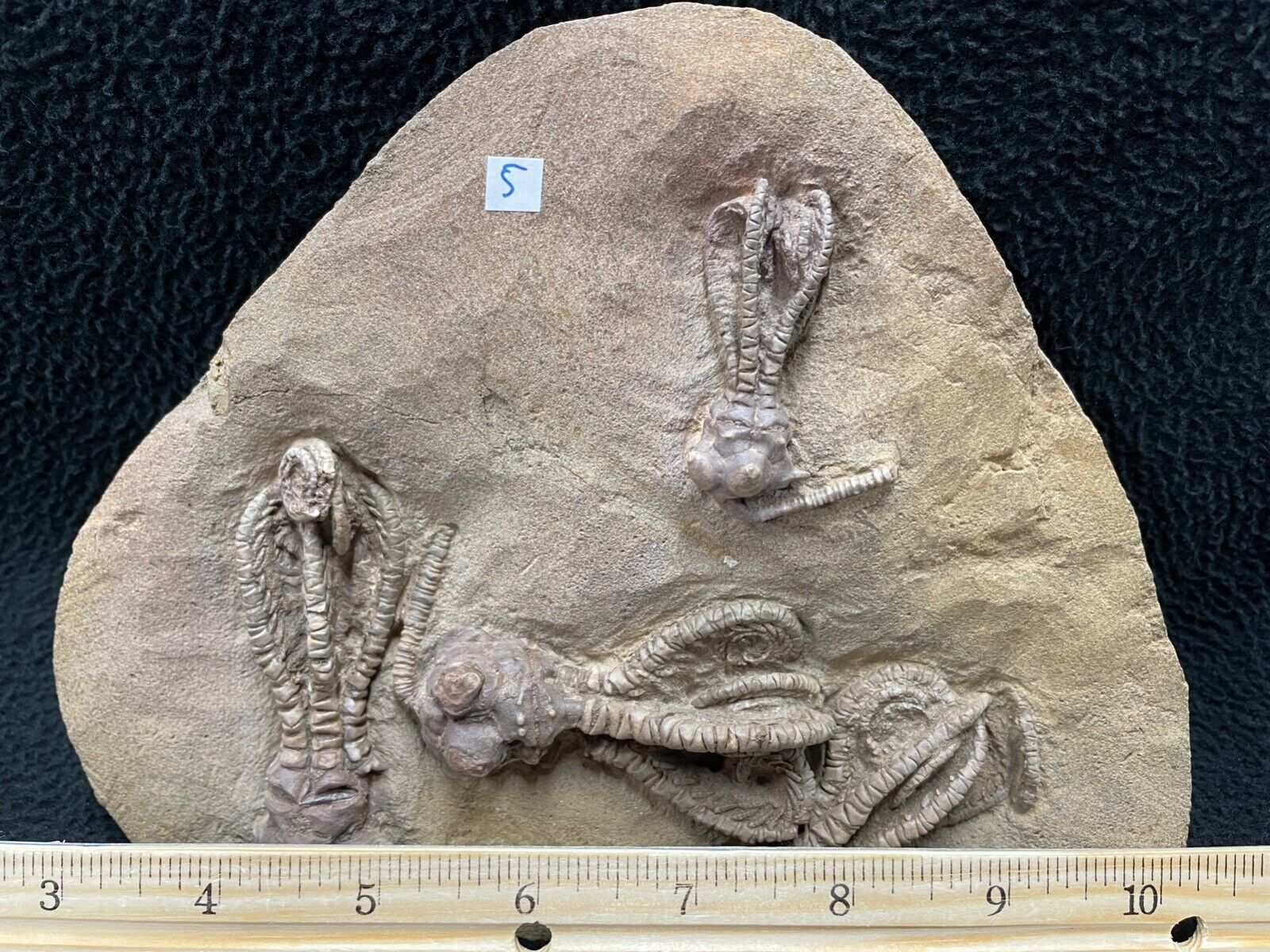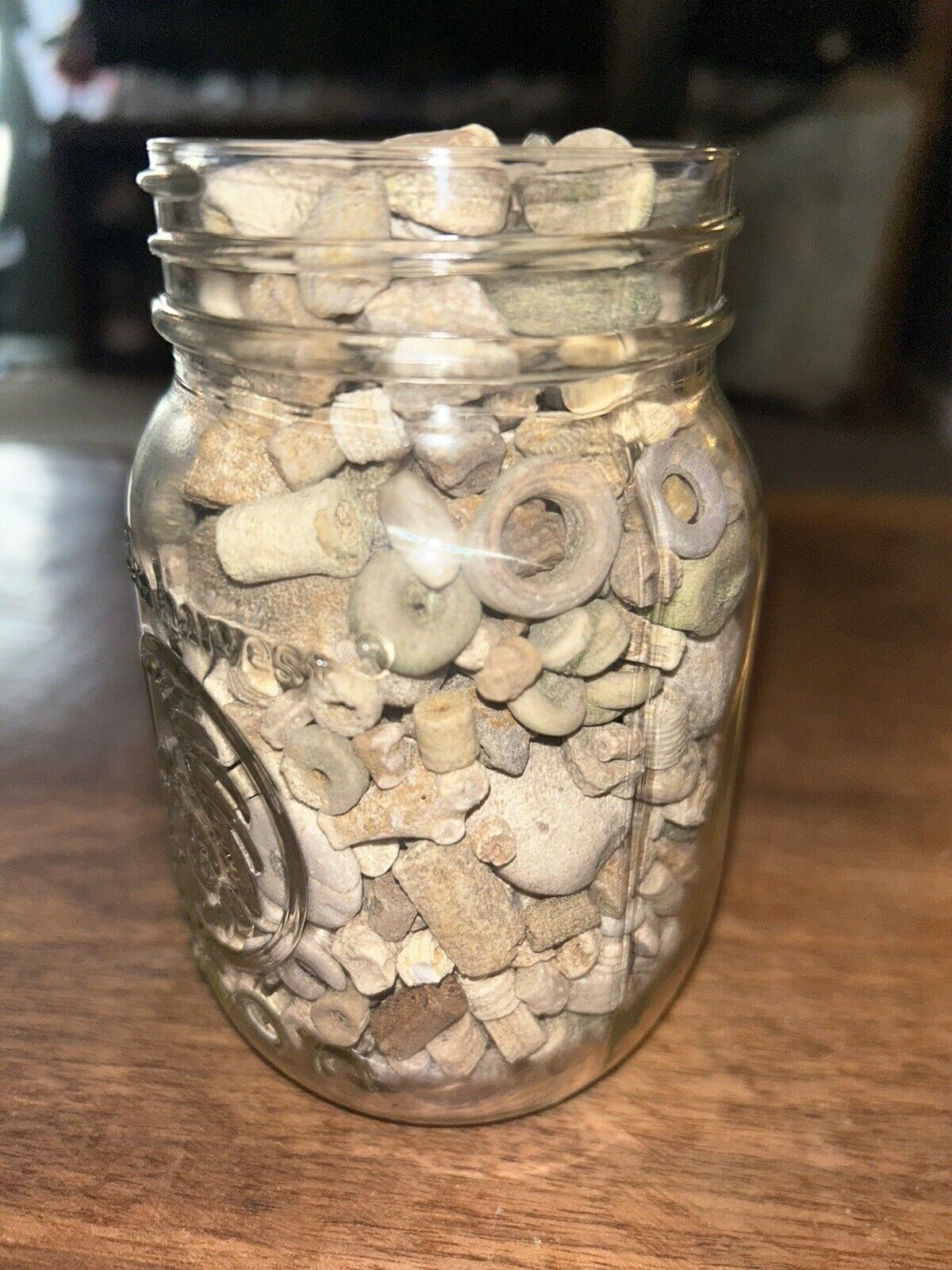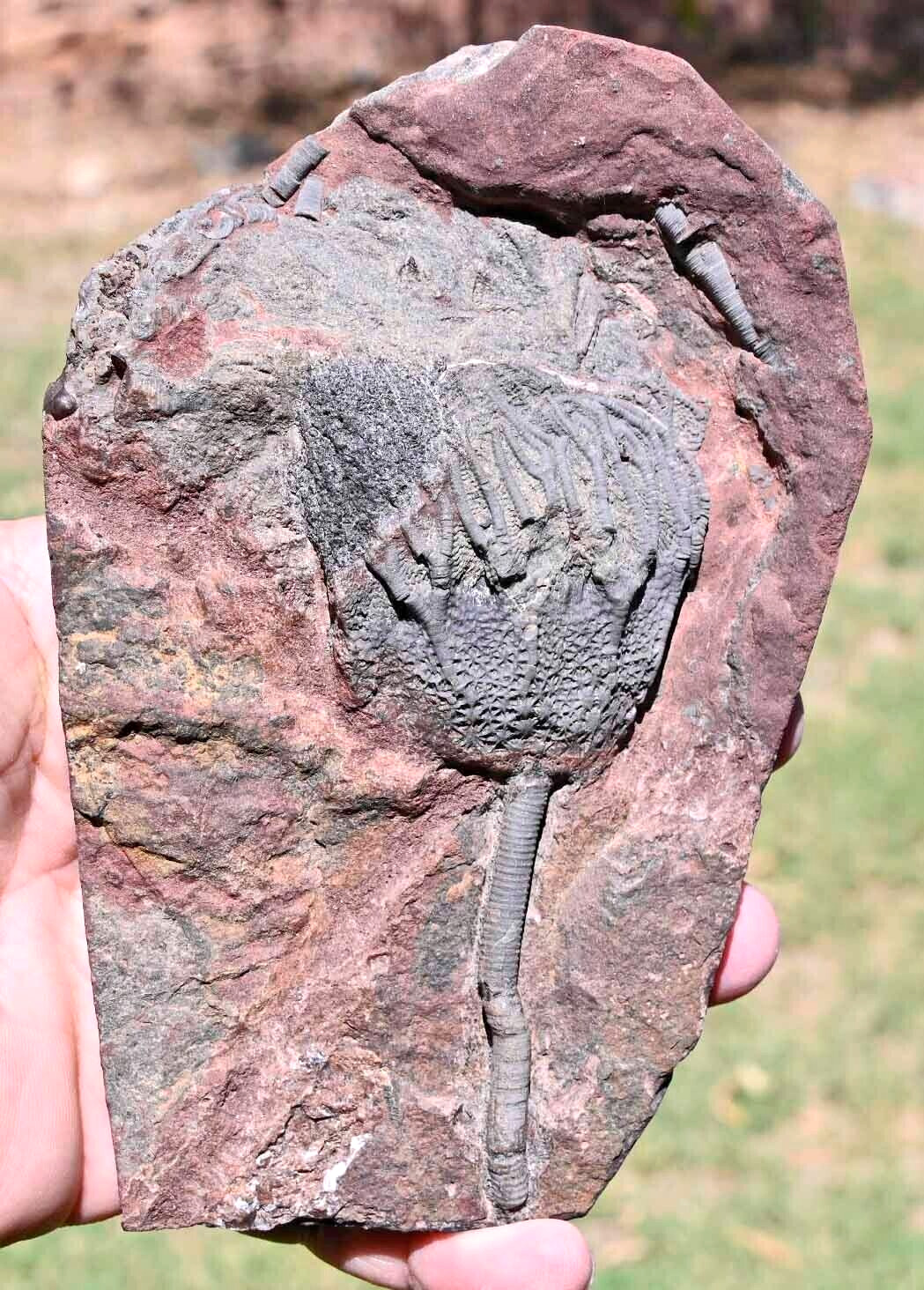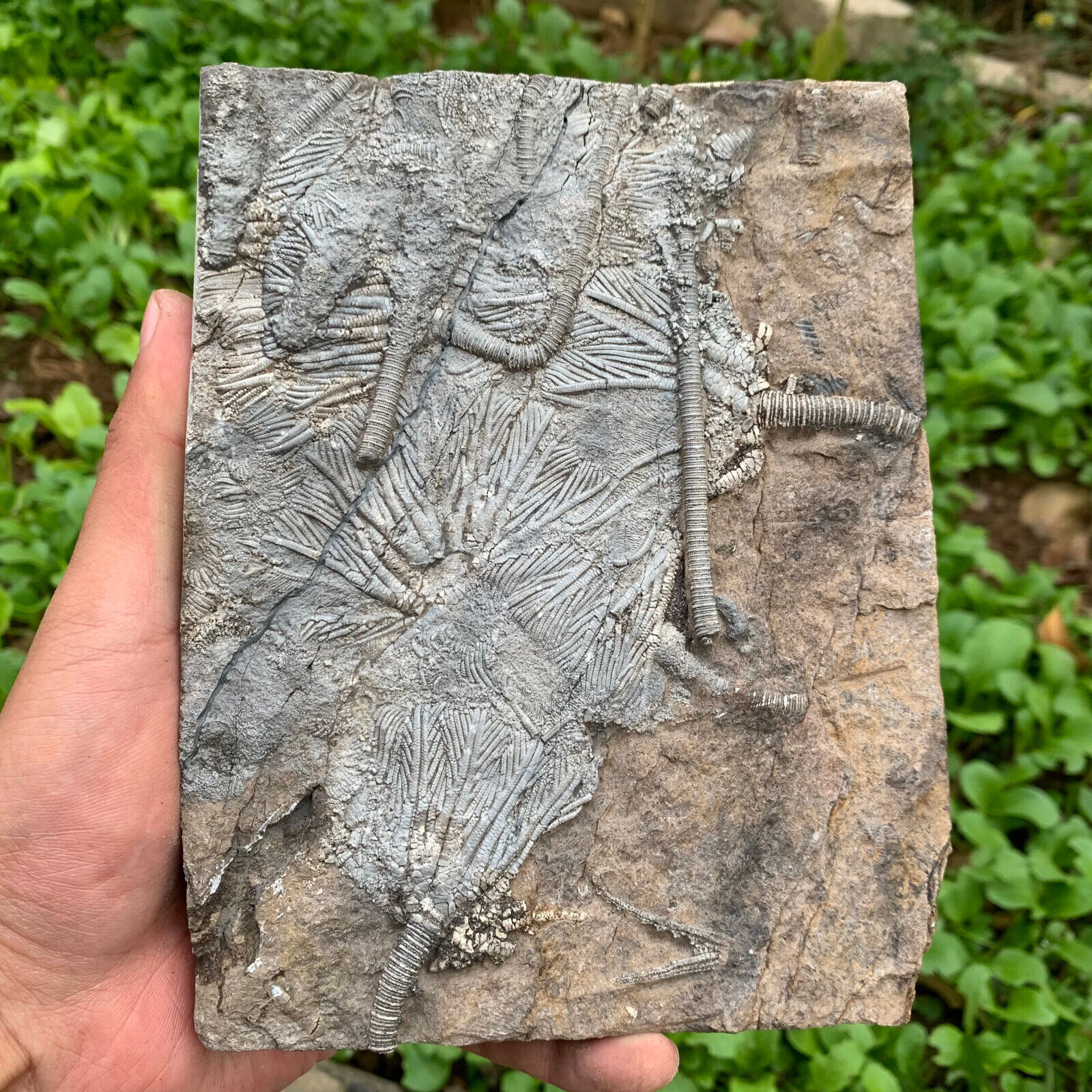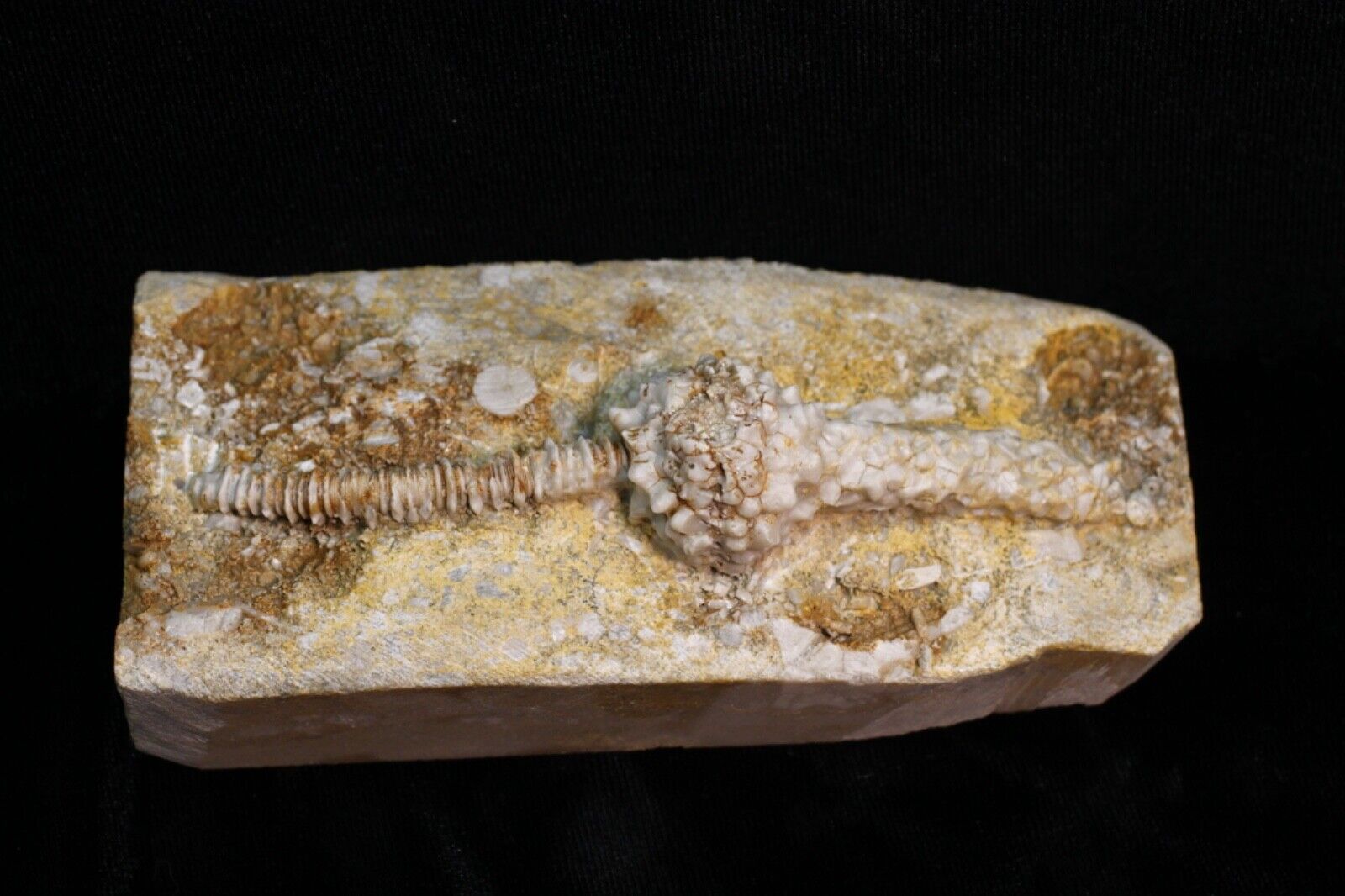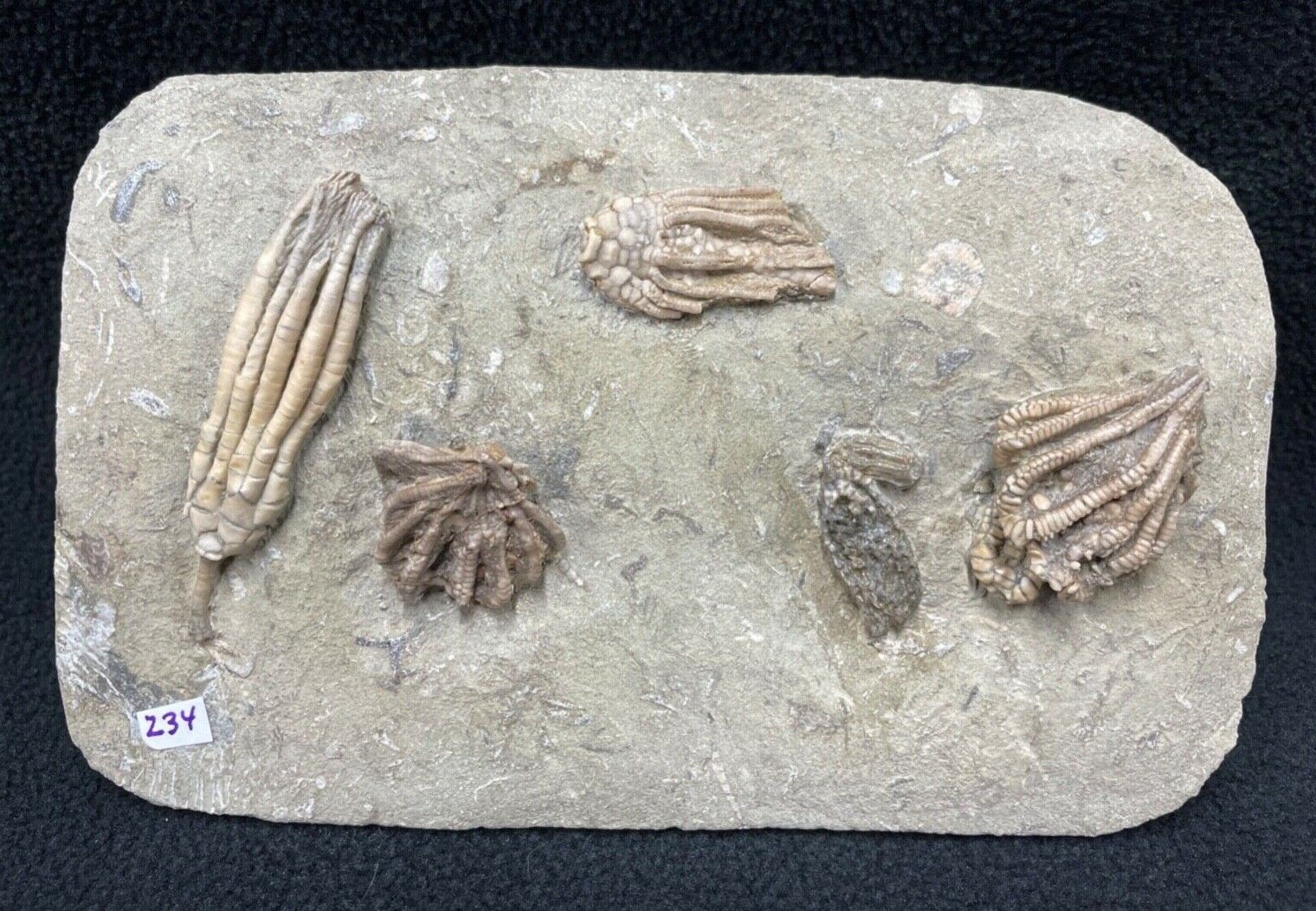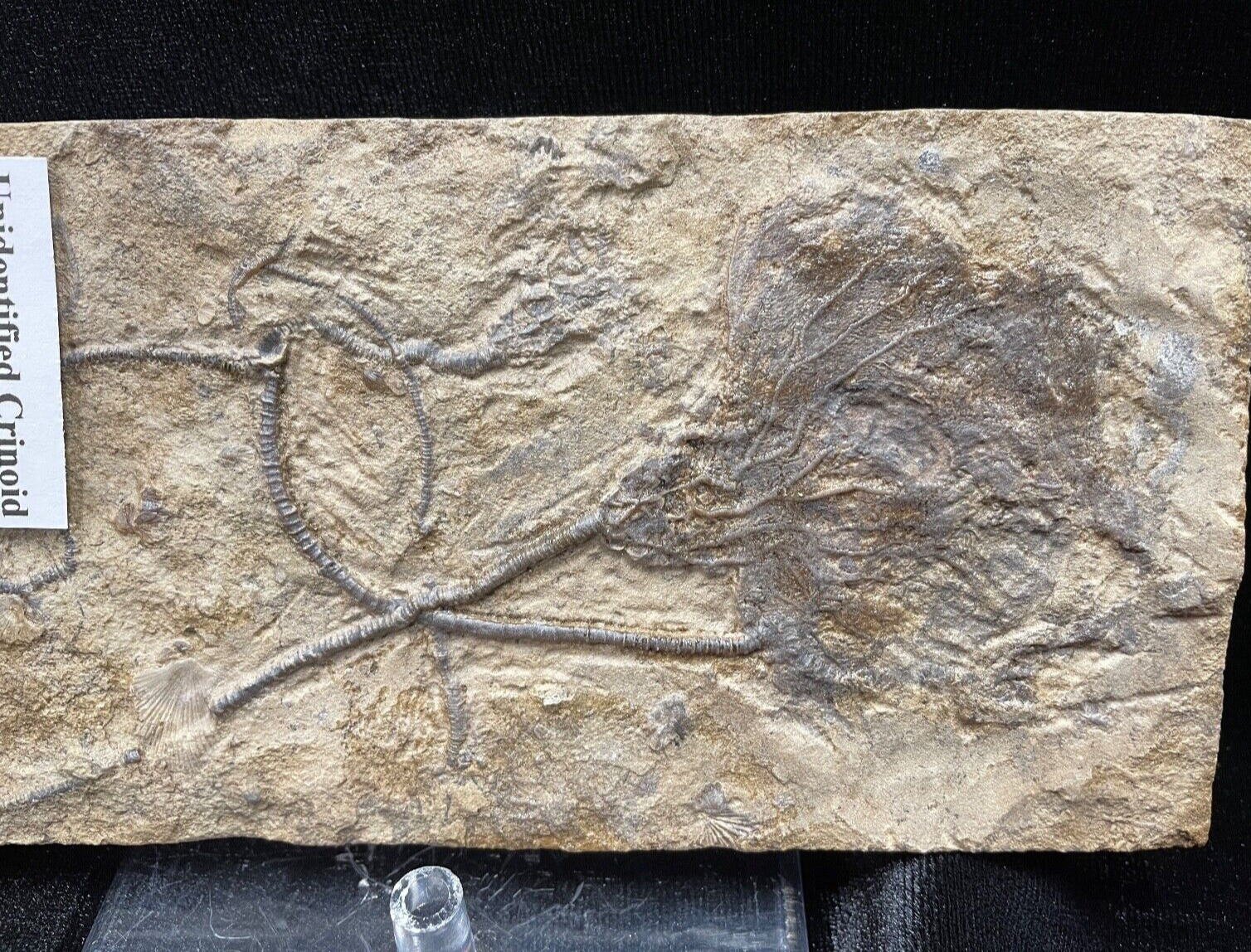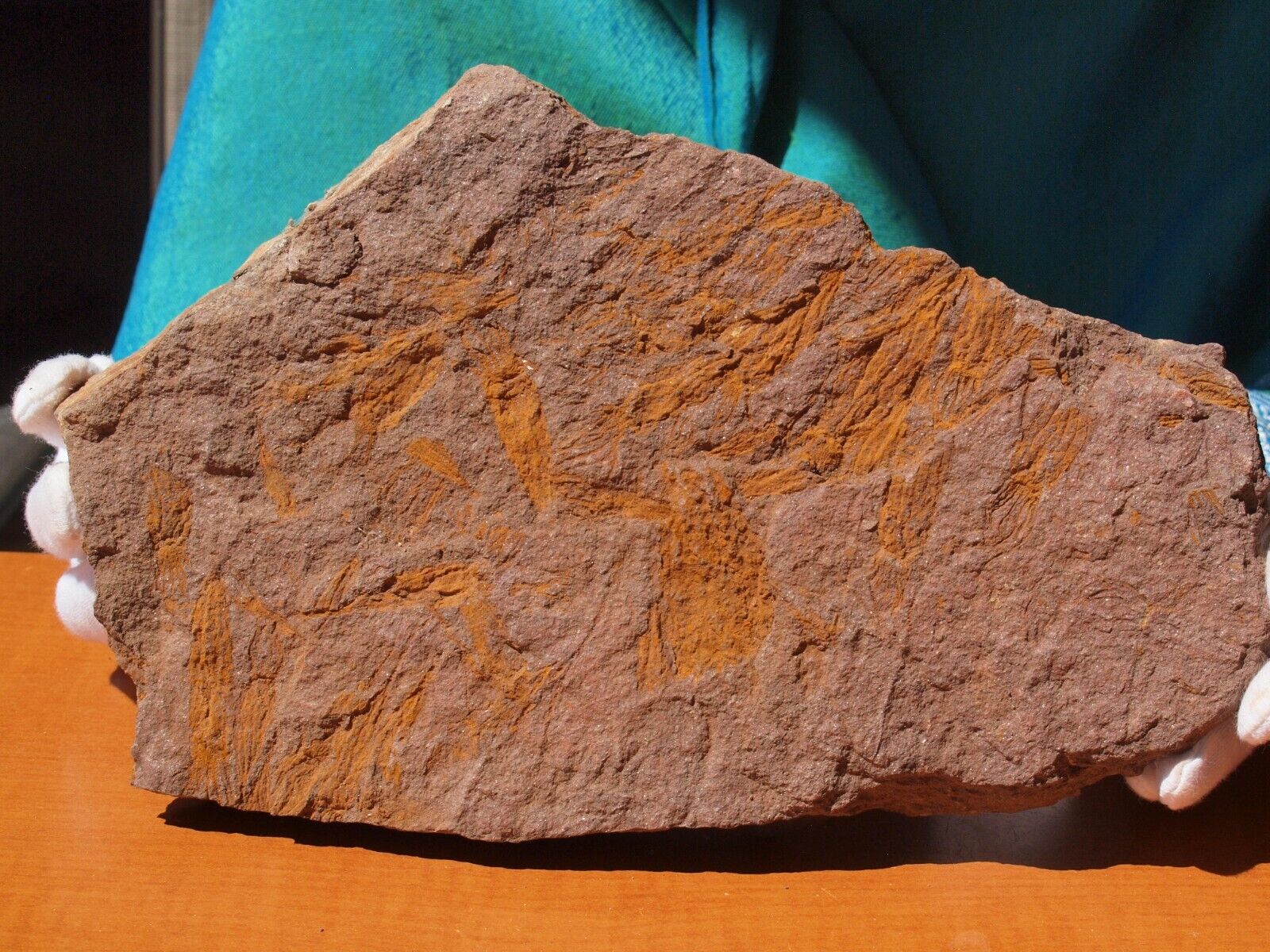-40%
Fossils of crinoids from the prehistoric Jurassic biota of China
$ 121.43
- Description
- Size Guide
Description
size: 120*180mmweight:1390g
Description
Sea lilies are a spiny skinned animal that first appeared in the Early Cambrian period, living in the sea with multiple arms and feet, a flower shaped body, and a calcareous shell on the surface. Due to their resemblance to plants, people gave them the name Sea lilies.
The body of sea lilies has a stalk like a plant stem, and the feather like thing on the top of the stalk is their tentacle, also known as wrist. These tentacles, like the leaves of ferns, confuse people into thinking they are plants. Sea lilies are an ancient invertebrate, and hundreds of millions of years ago, their figures were everywhere in the ocean.
Appearance characteristics
Sea lilies are marine animals, belonging to the echinoderms phylum of the sea lilies. The sea lily comes from the Greek word krinon, 'lily', and Eidos company, 'form'. They live in shallow water, at a depth of 6000 meters. In the sea lily, in their adult form, the stem is connected to the seabed. Feather star rating or cometulids] refers to the unstucked form.
It is characterized by a mouth on the top surface, surrounded by a feeding arm of sea lilies. They have a U-shaped intestine located next to their anal opening. Although the five radiation symmetry of the patterns of sea lilies and echinoderms can be basically confirmed, many exceed the five radiation symmetry. Sea lilies usually have their own attachment to a substrate.
There are only about 600 existing sea lilies, but in the past, they were more diverse and diverse. Some thick limestone beds can be traced back to the middle to late Paleozoic, almost completely composed of fragments of disarticulated crinoids.
Discovered in Guanling
The Guanling Biota is a biome composed of various phyla of organisms such as sea lilies, aquatic reptiles, fish, bivalves, ammonites, and conodonts. The Guanling Biota is characterized by the preservation of perfect marine reptiles and sea lilies fossils, and is a rare biome that thrives together with various phyla of vertebrates and invertebrates. The perfect preservation, diversity of types, and abundance of its fossils are truly rare in the world, making it a unique Late Triassic fossil reservoir in the world.
